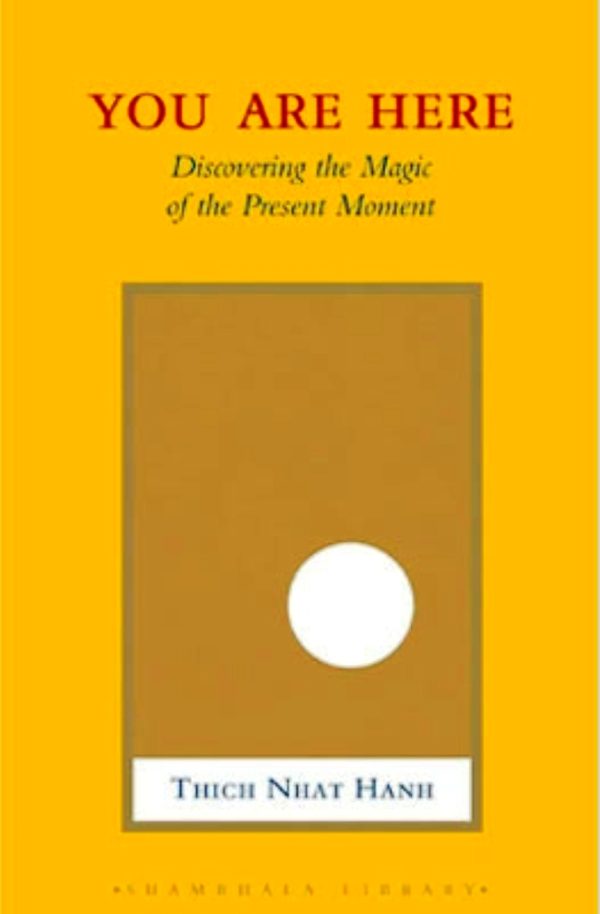Ashik Kabir
A comparative analysis of three inspiring books
In a world characterised by constant busyness and disruptions, the pursuit of inner peace and personal growth has become increasingly crucial. Books on mindfulness and self-discovery offer readers guidance and inspiration on how to navigate life’s challenges with clarity and compassion. Three such books, “You Are Here” by Thich Nhat Hanh, “Things We Can See When We Slow Down” by Haemin Sunim, and “The Four Agreements” by Don Miguel Ruiz, offer unique perspectives and tools for cultivating mindfulness and achieving personal growth. In this comparative analysis, we will investigate the core teachings, philosophical underpinnings, and practical applications of each book, exploring their similarities, differences, and their relevance in today’s world.
“You Are Here” by Thich Nhat Hanh
Thich Nhat Hanh, a Vietnamese Zen master, renowned peace activist, and prolific author, takes readers on a journey of self-discovery and mindfulness in this book. Rooted in the teachings of Zen Buddhism, the book emphasises the importance of being fully present in each moment, cultivating awareness of our thoughts, feelings, and actions, and fostering compassion for ourselves and others. It takes you to a different journey while transporting the readers to a world defined by serenity.
At the heart of this book is the practice of mindfulness, which Hanh describes as the art of living deeply in the present moment. Through simple yet profound exercises such as mindful breathing, walking, and eating, Hanh teaches readers how to anchor themselves in the present moment, letting go of worries about the past or future. By cultivating mindfulness, readers can find inner peace and joy amidst life’s different ups and downs, developing a greater sense of interconnectedness.
Hanh also explores the concept of interbeing, the understanding that we are all interconnected and interdependent. He emphasises the importance of recognising the suffering of others as our own and cultivating compassion and understanding in our interactions with the world. Through practices such as deep listening and loving speech, Hanh offers practical tools for building harmonious relationships and fostering a sense of community and belonging.
“Things We Can See When We Slow Down” by Haemin Sunim Haemin Sunim, a Korean Buddhist monk, bestselling author, and social media sensation, shares his wisdom and reflections on life in this book.
Drawing on his own experiences as a monk and counsellor, Sunim offers readers insights into finding peace and happiness amidst the chaos of modern life. Central to Sunim’s teachings is the importance of slowing down and embracing the present moment. He encourages readers to let go of their attachment to busyness and productivity, and instead, to savour life’s simple pleasures. Whether it’s enjoying a cup of tea, watching the sunrise, or spending time with loved ones, Sunim reminds us of the beauty and wonder that surround us when we take the time to pause and appreciate them. In addition to mindful practices, Sunim also explores themes of self-compassion, resilience, and the power of letting go.
He asks all to be kind to ourselves, to accept our imperfections, and to cultivate gratitude for the blessings in our lives. By letting go of expectations and regrets, Sunim teaches readers how to find peace and contentment in the present moment.
“The Four Agreements” by Don Miguel Ruiz
Don Miguel Ruiz, a Mexican author and spiritual teacher, presents a powerful framework for personal transformation in this book. Drawing on ancient Toltec wisdom, Ruiz outlines four guiding principles for living a life of freedom, happiness, and authenticity. The first agreement, ‘Be impeccable with your word’, emphasises the importance of speaking with integrity and using our words to uplift and empower ourselves and others. The second agreement, ‘Don’t take anything personally’, invites readers to release the need for validation from others and to recognise that people’s actions are often a reflection of their own beliefs and experiences. The third agreement, ‘Don’t make assumptions’, encourages readers to communicate clearly and ask for clarification rather than making assumptions about others’ intentions. Finally, the fourth agreement, ‘Always do your best’, reminds readers to give their best efforts while doing anything. Through these four agreements, Ruiz offers readers a practical roadmap for breaking free from self-limiting beliefs and societal conditioning and living a life of authenticity and purpose.
Comparative Analysis
While “You Are Here”, “Things We Can See When We Slow Down”, and “The Four Agreements” all explore themes of mindfulness, inner peace, and personal growth, they do so from distinct cultural and philosophical perspectives. Thich Nhat Hanh’s “You Are Here” draws on the teachings of Zen Buddhism, offering readers a comprehensive guide to living mindfully and cultivating compassion. Haemin Sunim’s “Things We Can See When We Slow Down” reflects the gentle wisdom of Korean Buddhism, emphasising the importance of slowing down and savouring life’s simple pleasures. Don Miguel Ruiz’s “The Four Agreements”, on the other hand, presents a pragmatic approach to personal transformation rooted in ancient Toltec wisdom.
Despite their differences, all three books share a common goal — to help readers find peace, happiness, and fulfilment in their lives. Whether through mindful practices, gentle reflections, or transformative principles, each author offers readers valuable insights and tools for riding out life’s challenges with grace and wisdom.
_____________________________
The writer is a freelance contributor
















